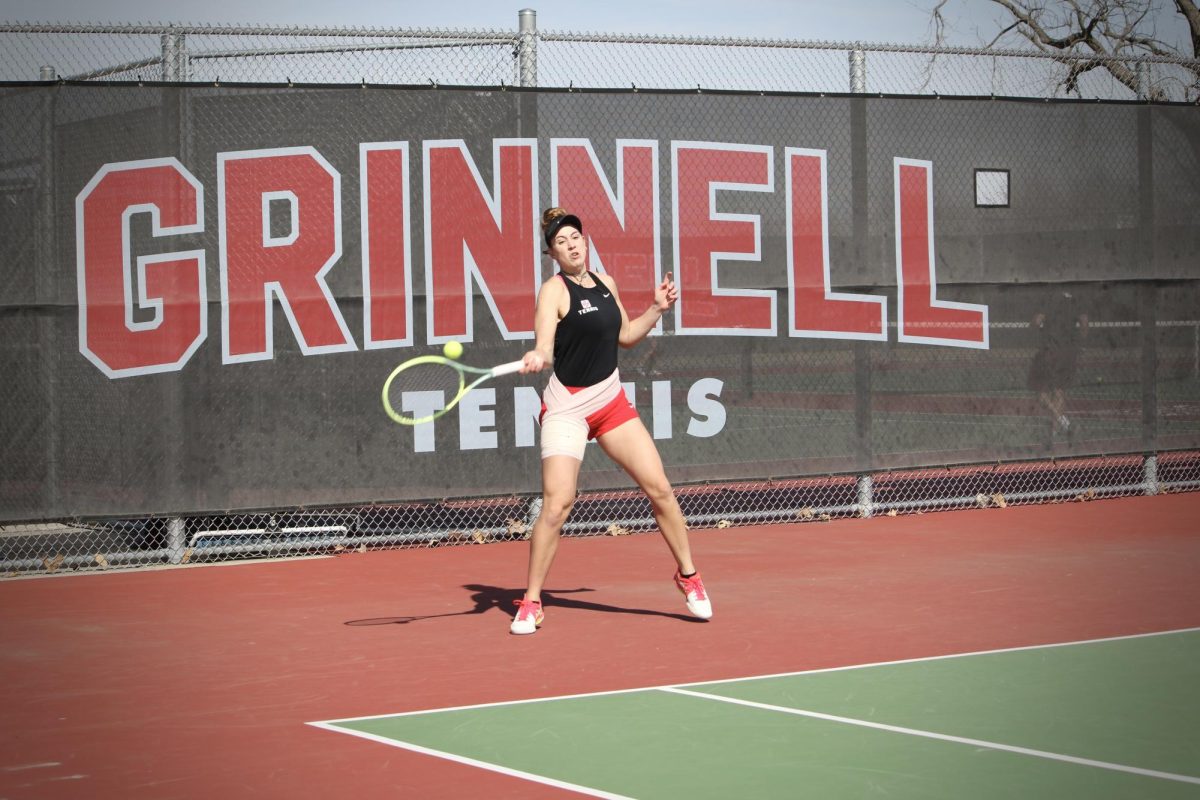Nearly one-third of Grinnell College students play a sport, whether at the varsity, club or intramural level. Each year, teams receive new students to bolster their roster, but athletics are not always a viable pursuit for four years and each year teams lose players for a variety of reasons. But transitioning from life as an student athlete to a non-athlete is not always easy, and can mean changing social scenes entirely.
“I really liked playing soccer because it kept me in shape and gave me a family,” said Lila Cardozo ’19, a former soccer player who left after her second-year season. “For me, I stopped playing soccer in favor of taking advantage of a few more opportunities on campus.”
College sports, even at the Division III level, require a sizeable time commitment and often mean giving up a variety of different activities in favor of the sport. “That was what made the transition easiest for me,” said Sam Nakahira ’19, a former member of the women’s golf team. “When I stopped playing, I got so much time back. I received a fellowship the following semester and was able to take time to focus on that. I think people forget what kind of commitment and responsibility being a student-athlete [requires}, and for me leaving [the team] was nice to get a chance to focus on my studies.”
Transitioning out of sports is akin to breaking a habit. Many of the resources available on campus for athletes aren’t expressly available for non-athletes or those who stop playing a sport during their time at Grinnell. But for most leaving a team is like leaving a family.
“I was lucky that I didn’t play a sport when I first got to campus.” said Elizabeth Lane ’19, a former volleyball player. “Because I was able to establish a social group on campus before I started playing [volleyball] … I still had friends I could go to. But leaving the team was hard, I felt like I was letting them down.”
Each team has a slightly different culture, making each transition equally varied, but the small size of campus can make it easy to maintain friendships even without sharing a playing field.
“I was also lucky in that when I joined [football] I joined it after I had a social group on campus,” said Rohan Gandotra ’20, a former football player. “So when I quit I also had friends to go back to, but I still am good friends with my former teammates. The transition wasn’t really that hard for me because they were supportive and it didn’t feel like I had to change social scenes. They respected my decision and were supportive throughout.”
For Cardozo, leaving the soccer team changed her life, but she still finds ways to get some athletics back into her life. “Being in the Bear [Athletic Center] can be a little weirder now,” Cardozo said. “But I’ve found ways to stay active and interact with the community through clubs like ISC [International Soccer Club] and workouts in general. I still see teammates and though I definitely don’t use the space like I did, I still engage with it.”
Gandotra also noted his interactions in the athletic center.
“I feel very comfortable being in there,” Gandotra said. “I think that comes from the year I played [football] because I built a familiarity with the space. I think it’s different for former athletes because we’ve had time to learn the Bear [athletic center] and get to know the people in it, whereas non-athletes might be a little more intimidated by it.”
In terms of a social transition, it varies based on individual team culture, but Gandotra, Cardozo and Nakahira all mentioned that different aspects of life at Grinnell made the process worth it.
“I loved being on a team,” Cardozo said. “I was in this close-knit community of other women who would hang out together and be social and that went away when I quit, which was sad. But there weren’t a lot of international students on the soccer team, so if I hadn’t stopped playing, I don’t think I would have ever gotten to meet those people and share those experiences. I think [quitting the women’s soccer team] allowed me to expand socially and … I’ve met people and made friendships that I wouldn’t have otherwise.”



































































